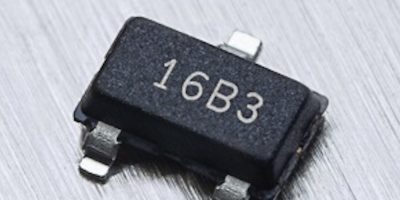Micropower switches extend batteries for IoT
Two low power Hall effect switches, the MLX92216 and MLX92217, have 1.0 microwatt power consumption and narrow tolerances for a predictable power budget, helping to extend battery runtime, said Melexis.
These magnetic devices detect open or closed positions and can replace traditional reed switches in IoT and industrial or white goods.
The growing demand for smart devices to be battery-powered but long lasting is a challenge for IoT. The need for low power components which are both reliable and accurate is paramount, said Melexis.
The MLX92216 and MLX92217 microwatt switches are three-wire monolithic magnetic switches which are claimed to deliver industry leading accuracy, consistency and reliability throughout the lifetime of the application. Unipolar, omnipolar and latch variants are available, making the device suitable for applications such as lid close/open detection, wearables, industrial machines, appliances, tablet cases, valves, energy and flow meters, while also serving as a replacement for traditional proximity and reed switches.
The switches have an integrated logic for automatic sleep/awake sequencing enabling 0.9 microA average current consumption with no action necessary from the user (depending on the model variant). The MLX92217 has an ‘enable’ pin that allows users to activate or deactivate the automatic sleep logic, driving the standby current consumption down to 200nA whilst still ready to be woken up by the system. Paired with min/max tolerance variation (less than 50 per cent), these devices provide a stable power budget and longevity, including peak current consumptions of less than 1.5 microA.
The MLX92216 and MLX92217 offer a choice of magnetic thresholds and options such as update rates or operating voltage range (1.6 to 5.5V). The switch ICs are available in UTDFN-4L and TSOT-3L small package options. They are suitable for operation in ambient temperatures from -40 to +85 degrees C.
Samples for the MLX92216 and MLX92217 are available now.




